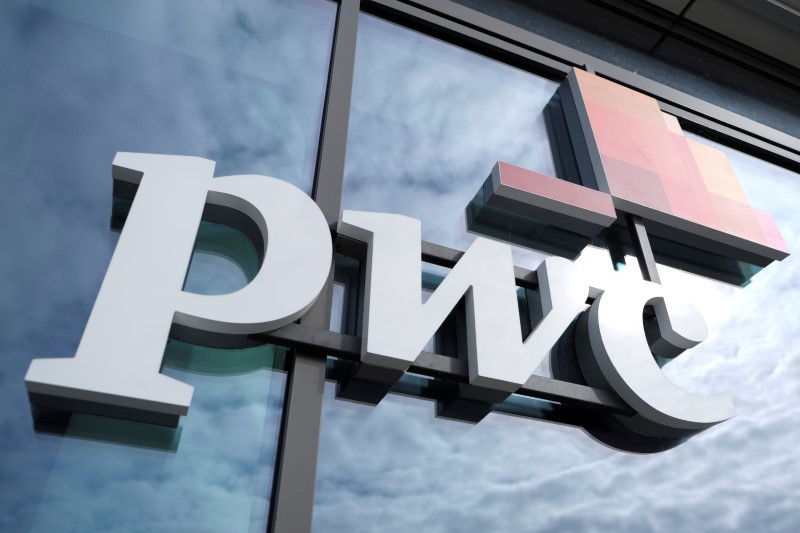

At 73 per cent, nearly three quarters of CEOs believe global economic growth will decline over the next 12 months, according to PwC’s 26th Annual Global CEO Survey, which polled 4,410 CEOs in 105 countries and territories in October and November 2022. The number is lower, at 62 per cent, for CEOs in the Caribbean.
The bleak CEO outlook is the most pessimistic CEOs have been regarding global economic growth since PwC began asking the question 12 years ago. Those expectations represented a stark reversal from the last Caribbean participation in the survey (conducted in 2020), when a similar proportion, 69 per cent, thought economic growth would improve.
30% of Caribbean CEOs think their organisations will not be economically viable in a decade
In addition to a challenging environment, nearly a third of Caribbean CEOs think their organisations will not be economically viable in a decade if they continue on their current path. The pattern is consistent with global (39%) and Latin America (29%) though slightly higher than the US (20%), UK (22%) and Canada (24%).
Caribbean CEOs’ confidence in their own companies’ growth prospects also declined dramatically (by over 40%) with less than half being very or extremely confident compared to the survey conducted in 2020 where almost 80 per cent were either somewhat confident or very confident about their organisation’s prospects for revenue growth over the next year.

CEOs are also seeing multiple direct challenges to profitability within their own industries over the next 10 years. Some 76 per cent believe changing customer demand/preferences will impact profitability, followed by changes in regulation (64%) and technology disruptions (60%).
Inflation, macroeconomic volatility and climate change top CEOs’ concerns
While cyber and health risks were the top concerns for Caribbean CEOs the last time they participated in the survey, the impact of the economic downturn is top-of-mind for CEOs this year, with inflation (50%) and macroeconomic volatility (36%) leading the risks weighing on CEOs in the short-term – the next 12 months – and over the next five years. Close behind, 26 per cent also feel financially exposed to climate change rising to be the top threat over the next five years. Cyber risks have fallen dramatically to just 14 per cent and, although they increase to 26 per cent in the medium term, CEOs need to continue to show their commitment to stay ahead of cyber challenges that are still very much on the rise, so they safeguard their business against attacks.
CEOs are cutting costs but not headcount or compensation
In response to the current economic climate, Caribbean CEOs are looking to cut costs and spur revenue growth. Sixty two per cent report reducing operating costs, while 58 per cent report diversifying product and service offerings and 44 per cent raising prices. However, 66 per cent say they do not plan to reduce the size of their workforce in the next 12 months. A vast majority – 84 per cent – indicate they do not plan to reduce staff remuneration in order to retain talent and mitigate workforce attrition rates.

Bruce Scott, territory leader, PwC Jamaica, said: “Decades-high inflation, volatile economies and the impact of climate change have contributed to a significant rise in Caribbean CEOs’ pessimism.”
Scott added: “Both locally across the Caribbean and globally, CEOs are re-evaluating their operating models and cutting costs, yet despite these pressures, they are continuing to put their people front and centre as they look to retain talent in the wake of the ‘Great Resignation’. The world continues to change at a relentless pace, and the risks facing organisations, people – and the planet – will only continue to rise.”
He continued: “Despite this rising pessimism and its potential impact on international trade and expansion into new markets, Jamaica’s macroeconomic indicators are still trending in the right direction and a number of sectors are still seeing moderate growth with output accelerating for agriculture, forestry, and fishing (17% vs 6.3%) and manufacturing (9.7% vs 5.7%) during the third quarter of 2022, as reported by the Planning Institute of Jamaica and the Statistical Institute of Jamaica (STATIN). So it’s not all doom and gloom. However, if organisations are not only to thrive – but survive the next few years – they must carefully balance the dual imperative of mitigating short-term risks and operational demands with long-term outcomes – as businesses that don’t transform, won’t be viable.”
Managing climate risk a growing priority for businesses
Climate risk featured more prominently – ranking third (26%) – as a short-term risk over the next 12 months for Caribbean CEOs compared with Global CEOs. This is in-line with how they see climate risk impacting their cost profiles (68%), supply chains (58%) and physical assets (38%) from a moderate to very large extent. Recognising how vulnerable the Caribbean is to climate change and the impact it will have on business and society in the near and over the long-term, a majority of CEOs have already implemented – or are in the process of implementing – initiatives to reduce their companies’ emissions (52%), in addition to innovating new, climate-friendly products and processes (44%), or developing data-driven, enterprise-level strategy for reducing emissions and mitigating climate risks (38%).
“The risks facing organisations and society today cannot be addressed alone and in isolation. CEOs must therefore continue to collaborate with a wide range of public and private sector stakeholders to effectively mitigate those risks, build trust and generate long term value – for their businesses, society and the planet.”
Bruce Scott, territory leader, PwC Jamaica
Despite an increasing number of countries now having some form of carbon pricing, a majority of respondents (64%) still do not plan to apply an internal price on carbon in decision-making. The good news is that roughly the same amount (60%) have already implemented – or are in the process of implementing – initiatives to protect their company’s physical assets and/or workforce from the impact of climate risk.
Scott concluded: “The risks facing organisations and society today cannot be addressed alone and in isolation. CEOs must therefore continue to collaborate with a wide range of public and private sector stakeholders to effectively mitigate those risks, build trust and generate long term value – for their businesses, society and the planet.”






Comments